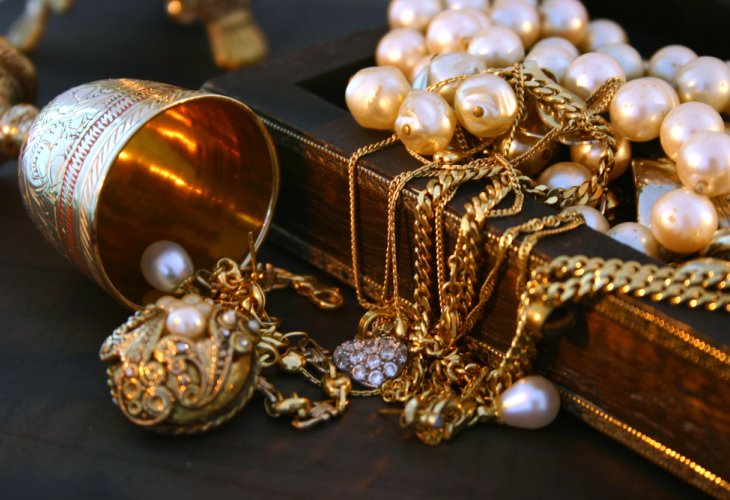The Hidden Cost of Jewelry: Taxes in the Diaspora
Sometimes, parting with jewelry wasn't about mitzvahs, but rather necessity—paying taxes. Our ancestors in the Diaspora faced constant taxes, each time under a new pretext. Just as they earned a few coins, a new order demanded yet another tax.
 (Photo: shutterstock)
(Photo: shutterstock)The Israelites gave half a shekel for the Tabernacle and generously donated their jewelry, both women and men alike.
Consider, for a moment, the generosity involved in giving up jewelry. Each piece was handcrafted and purchased at great cost. There were no mass-produced items from China back then. A woman becomes attached to her ring and loves it. She could donate silver, valuable items for the Tabernacle, but she chooses to part with something very dear to elevate the divine presence in Israel.
At times, however, giving up jewelry wasn't for a mitzvah but out of necessity—paying taxes. Our ancestors in the Diaspora were burdened with endless taxes, always under a new excuse. They lived through the curse of the Torah: "Your donkey taken in front of you and not returned; your sheep given to your enemy." No matter how hard they worked to earn a few coins, a new decree demanded a new tax.
Taxes were collected by community officials, and in the synagogue, there was a large, secure safe where taxes were kept until submitted. In Prague's ancient Altneuschul, you can still see the large, built-in safe.
Community officials assessed a person's property, imposing taxes proportionate to wealth and income. If you thought today's income tax was bad, you'd be surprised to learn it could be worse...
Here arose a tough question: Are jewelry items considered "property"? Sure, in theory, you can sell them, but a woman doesn't sell the jewelry she received at her wedding. It’s not cash sitting in a safe, so shouldn't be counted as property, claimed righteous women. Yet, community officials weren't quick to agree. The tax burden was on the entire community; if someone shirks their duty, others must pick up the slack, and for them too, money doesn't grow on trees.
This question was brought before Rabbi Jacob Molin, the "Terumat HaDeshen" and prominent rabbi of all German Jews. Rabbi Jacob ruled that according to the sages, jewelry isn't considered property, and taxes shouldn't be levied on it. However, since their times, people had smartly hurried to buy expensive jewels for themselves or their wives right before tax time. On the other hand, it was unfair to impose taxes on all women's jewelry. Moreover, personal jewelry is hard to sell, and it’s not always easy to find a buyer at full value.
Thus, Rabbi Jacob ordered that jewelry be valued lower than its actual price (Terumat HaDeshen, Siman 142, Rema Choshen Mishpat 163:3). In Italy, the tradition was to swear on one's assets, adding "except for jewelry, clothes, and books." There was a special reason not to tax books to prevent a decline in book buyers and, Heaven forbid, a decrease in Torah study (Terumat HaDeshen, ibid.).

